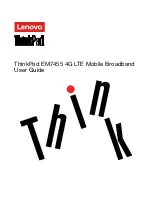
220 Series
29
Activating outputs
The communicator has 6 terminals (T1, T2, T3, T4, T5 and T6) which can be programmed as Inputs or Open-Collector Outputs.
The Open Collector outputs can be activated automatically (when certain programmed events occur) or remotely, by SMS or caller
recognition using a preprogrammed number.
Automatic output activation/deactivation
The Open Collector outputs of the communicator may be activated automatically by the following events.
Panel interconnection fault: activated when the connection with the panel is not present.
Jamming detect: the output is activated by detection of jamming (terminal T6, factory setting).
Antenna fault: the output is activated when the antenna is missing or the antenna has limited function (ANT5-02 only).
Tamper: the output is activated when tamper is detected (terminal T4, factory setting).
PSTN fault: the output is activated when the PSTN malfunctions (terminal T1, factory setting).
GSM fault: the output is activated when the GSM fails, a SIM problem occurs, or there is no signal (terminal T5,
factory setting).
No cellular network: the output is activated when the data connection fails (terminal T2, factory setting).
IP receiver fault: the output is activated when communications with the IP receivers fail.
Power fault: the output is activated when there is a power fault or failure.
FTC fault: the output is activated when an event send fails.
An automatically activated OC output returns to standby when all the causes that tripped it are resolved, except for FTC fault,
in which case it returns to standby after a set delay (ON time).
Remote output activation/deactivation
The GSM connection must be present for the outputs to be remotely activated/deactivated.
We recommend the device is programmed with the
Black List Enabled
(
Options
>
Dial Options
) and
White list
disabled
(
Phonebook
) for the numbers you wish to use for this function.
The number used to activate the outputs using Caller ID must NOT be concealed (it must NOT be a private number).
When terminals T1, T2, T3, T4, T5 and T6 are programmed as outputs, they may be controlled remotely via SMS and Caller ID.
The SMS is never saved to the device, but is deleted as soon as the command has been executed.
To enable this function, the output must be configured as a
Reserved Output
.
The Open-Collector outputs can be programmed as
Bistable
or
Monostable
:
Bistable
outputs are activated/deactivated with two separate commands;
Monostable
outputs stay active for the programmed
Monostable Time On
, after which they return to standby, or until
they are deactivated by SMS.
Each output can be programmed to return a confirm signal:
a previously programmed SMS, if the output was activated/deactivated via SMS;
a confirm ringtone, if Caller ID was used.
If Caller ID is used, the call hangs up automatically 12 seconds after the output is activated.
For further details on the
Control String
and
User Code
options used in the following paragraphs, refer to paragraphs
“
Inputs/Outputs
” on page 44 and “
Options
” on page 41.
Summary of Contents for B3G-220
Page 1: ...220 Series Universal Cellular Communicator Installation manual...
Page 61: ...220 Series 61...
Page 62: ...62 Universal Cellular Communicator...
Page 63: ......
















































